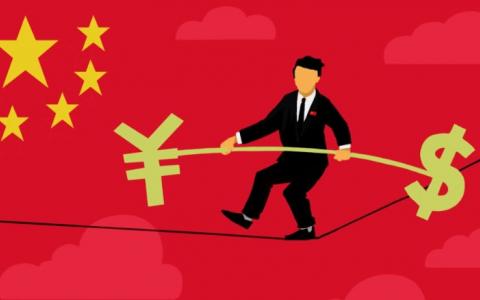
(CIO) Ray Dalio claimed last week that China is “for the most part quietly winning the geopolitical war.” He added that populist uprisings may lead to damaged markets, hampering America’s ability to ward off Chinese competition.
Dalio, Chief Investment Officer and co-founder of Bridgewater Investments, the world’s largest hedge fund, wrote in a LinkedIn post noting that there are parallels between the current era and the late 1930s and early 1940s when the US limited Japan’s participation in the US economy. In addition to an oil embargo that triggered World War II and pushed Japan to attack Pearl Harbor. Previously, Dalio called the trade war with China a “tragedy.”
“Time is on China’s side, as it is improving at a faster rate than the US,” Dalio wrote. He added that countries are having to choose between the US or China, with more opting to align with China because of its outsized trade presence and capital inflows. While the US military is superior, China’s abilities are rising, especially in the cyber realm, he said.
The numbers back up Dalio’s claim. The more Trump amps up the trade war, the more the U.S. economy suffers. Companies and consumers are paying more for everything from steel to socks. New York Federal Reserve economist Mary Amiti recently co-authored a study in May issued by the Centre for Economic Policy Research that found U.S. domestic prices rose “one-to-one with tariffs levied that year,” as Chinese exporters did not lower prices. Moreover, American supply chains suffered and there were fewer imported varieties of goods available.
Dalio predicted any impending economic downturn would be “socially and political ugly.” Such a scenario, he wrote, would require large fiscal spending and large budget deficits, with increased taxes on companies, more printed money of central banks and the buying of debts. Dalio predicted that as investors try to escape these constraints, it is possible that policymakers will turn to capital controls.
The economy has the largest wealth and political gaps since the late 1930s, Dalio noted. These, are leading to populist conflicts on the left and right that could undermine the efficiency of the economy and the federal government. Dalio sees this as a weakness for the US, predicting that the 2020 election will be “the greatest ideological clash” in our lifetimes, leading to tax law changes and wealth redistributions that will move markets.
Dalio echoed reports that the White House is considering ways to decouple the world’s two largest economies. He cited Senator Marco Rubio’s Equitable Act, legislation that ensures a process for delisting a Chinese firm from US exchanges if it doesn’t comply with US accounting rules and oversight regulations for three years. Citing national security concerns, China has been hesitant to let Big Four accounting firms inspect its companies. Bloomberg News reported on Friday that a U.S. Treasury Department spokesperson said there are no plans to block Chinese companies from listing on U.S. exchanges “at this time.”
Measures to limit China’s influence on US funds may be in the works. Dalio noted industry concerns over US capital enabling Chinese firms when the lines between state-owned and private firms are eroding.
Industry watchers say Dalio’s plan calls for Trump to limit capital in China, and includes freezing payments on debts owed to China.As well as using sanctions to inhibit non-US financial transactions with China. Dalio added that the president can apply capital and foreign exchange controls, freeze assets or payments on assets and force divestitures to “deal with any unusual and extraordinary threat” through emergency powers.



